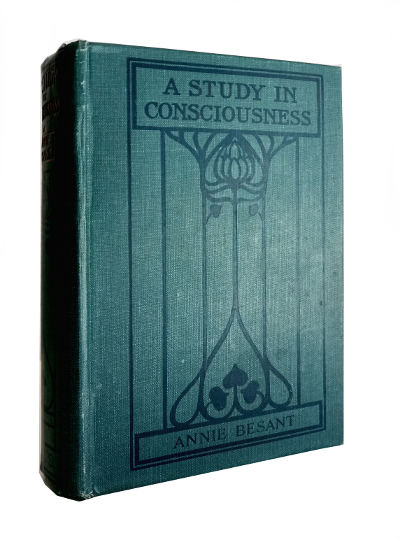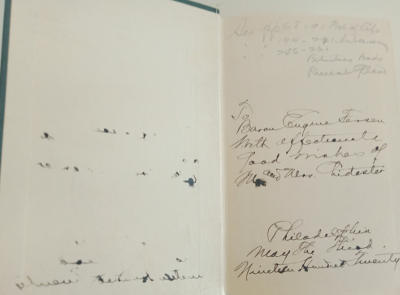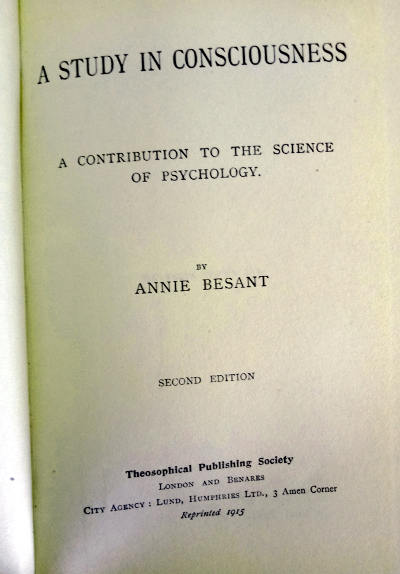About the book (from Theosophy World):
This book was intended as an aid to students in their study of the growth and development of consciousness, offering hints and suggestions which might prove useful to them.
It is a contribution to the science of psychology. She writes that the seed of consciousness is the Atma-Buddhi-Manas, the Jivatma. The Super-consciousness includes the whole of the consciousness above the waking-consciousness, like dreams, visions, inspirations, etc.
To bring the super-consciousness into manifestation on the physical plane, Besant proposes (in the early stages) to render the brain and sense-organs unresponsive to physical impacts and to induce Trance. This can be done by using the methods of Yogis. But she also says that there is a difference between the super-physical conditions of consciousness in the hypnotised subject and in the Yogi.
About the author (from Wikipedia):
Annie Besant (1 October 1847 – 20 September 1933) was a prominent British socialist, theosophist, women’s rights activist, writer and orator and supporter of Irish and Indian self-rule.
In 1890 Besant met Helena Blavatsky and over the next few years her interest in theosophy grew while her interest in secular matters waned. She became a member of the Theosophical Society and a prominent lecturer on the subject. As part of her theosophy-related work, she travelled to India. In 1898 she helped establish the Central Hindu College and in 1922 she helped establish the Hyderabad (Sind) National Collegiate Board in Mumbai, India.[2][3] In 1902, she established the first overseas Lodge of the International Order of Co-Freemasonry, Le Droit Humain. Over the next few years she established lodges in many parts of the British Empire. In 1907 she became president of the Theosophical Society, whose international headquarters were in Adyar, Madras, (Chennai).
She also became involved in politics in India, joining the Indian National Congress. When World War I broke out in 1914, she helped launch the Home Rule League to campaign for democracy in India and dominion status within the Empire. This led to her election as president of the India National Congress in late 1917. In the late 1920s, Besant travelled to the United States with her protégé and adopted son Jiddu Krishnamurti, whom she claimed was the new Messiah and incarnation of Buddha. Krishnamurti rejected these claims in 1929.After the war, she continued to campaign for Indian independence and for the causes of theosophy, until her death in 1933.




